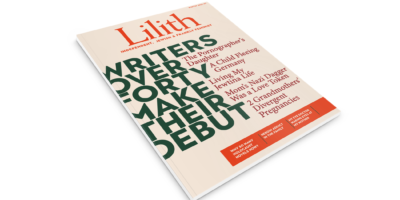
She Sings the Body, Imperfect
When I began to read Static Palace (Punctum Books, $21) by Leora Fridman, I had no idea what to expect. Static Palace is a lyrical exploration of what it may mean to have an imperfect body in an imperfect world. It’s a breaking down of what “perfect” even means, and a critiquing of social expectations in intimate relationships, artistic work, and political activism. The essays are raw. They’re delicate but rough. They’re serious as hell but never patronizing.
Static Palace is a series of 14 lyrical and braided essays. Each essay examines a different aspect of bodily vulnerability as it relates to our existence in a society. The writer rejects the idea that spelunk- ing in the hollow caves of the self is a solo activity by drawing extensively on outside sources. A non-exhaustive list of the minds Fridman relies on for her treatise includes Susan Sontag, Audre Lorde, Johanna Hedva, Kate Zambreno, Emily Dickinson, and Lena Dunham. In this way, the author is situating her work within the context of other thinkers and artists who have contemplated illness, stasis, bodies.
Fridman writes that she is interested in “repositioning weakness itself,” and “changing how we think about power,” especially as it is expressed in the gendered society structured by the patriarchal order within which we live. Not, she suggests, by remaking tenderness and weakness into power, but by accepting that something other than power can be a positive force in our lives. Later, she relays the perils of admitting the existence of chronic illness in a capitalistic society that defines worth by productivity. “As the pinpoints of sickness have increased in my life, I require more care, and I am more scared that I will be rejected from life, from work-life and domestic life and sex life, and other acts that we tend to think of as living.” There is more to the human experience than what we can do and how well we are. Well vs. ill is a false binary: who is to say what constitutes ability or disability? By what yardstick are we measuring a person’s wellness?
Fridman is also interested in the ways in which a political reality riddled with systemic ills impacts us. She parses climate anxiety, ableism, racism, misogyny. She talks about the inherent privilege of wallowing in one’s tragedies, a privilege that only those of certain means are afforded. “We don’t get to throw up our hands in defeat,” Fridman writes, “especially when so many of us don’t have the privilege to escape for more than a few days at a time and others of us don’t have that capacity at all.” Perhaps it would be better, offers Fridman, to perform a “canvassing the material of digital ruin […] to make things from that ruin itself.”
In Static Palace, there is no veil between the personal and the political. We are, all of us, a part of the body politic. We are all bodies. We are all persons. We are all affected by and affect the spiritual and physical worlds we inhabit. We are all helpless and empowered. We’re messy as hell and, as Fridman says in “Ode the Clumsy,” bumbling through our challenges. Embrace it, this book says. Lean into the chaos. Live in the gray. And maybe, just maybe, that’s where you’ll find the truth. Or, at the very least, some grace.
Mikhal Weiner is a writer and musician, originally from Israel, currently writing and living in Brooklyn with her family.






